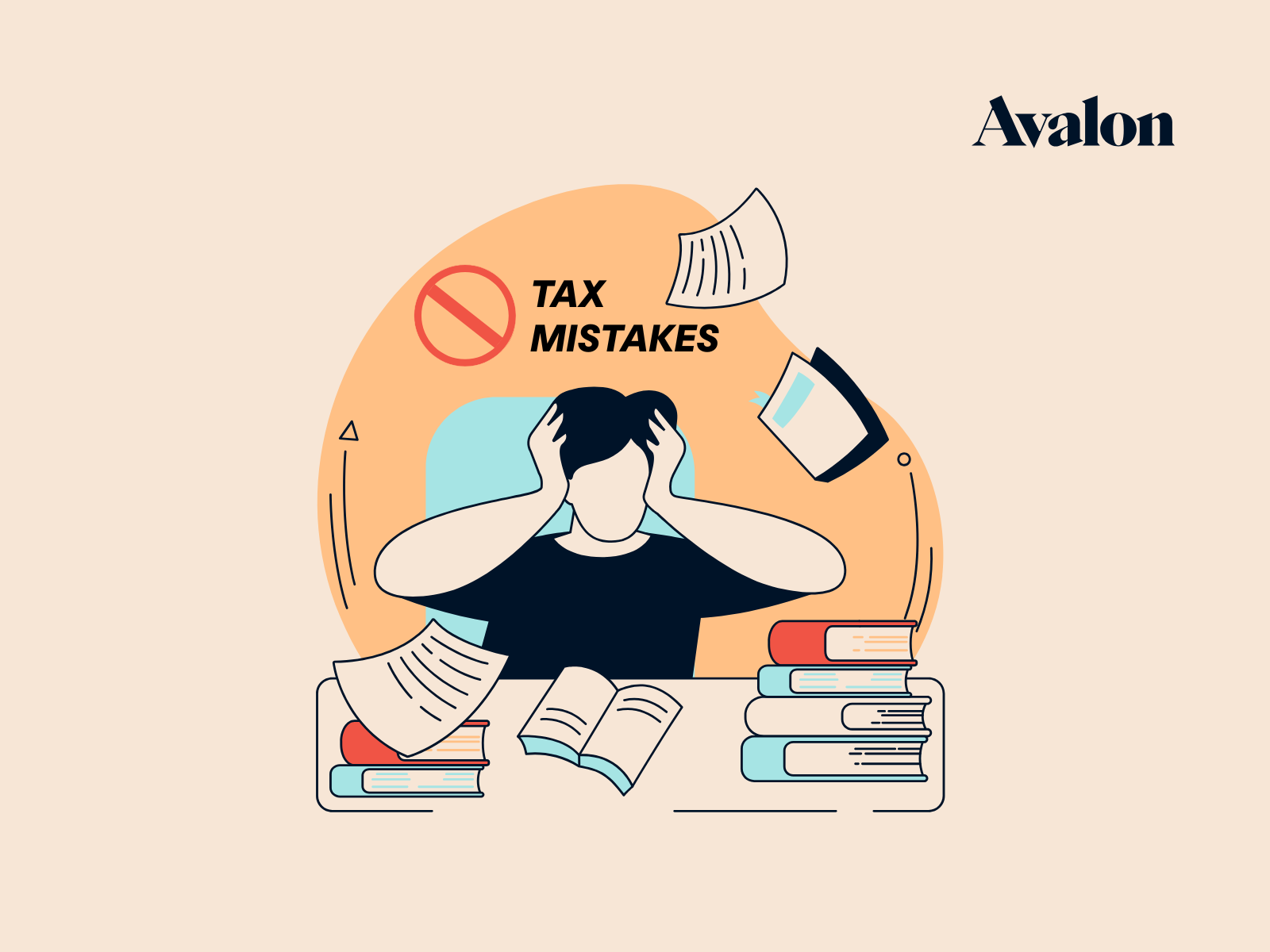How Corporate Taxes Work in Canada
Welcome to part two of our two part series on how Canadian taxes work. This article explains the important tax concepts you need to know about running a business through a corporation in Canada.
In this article we’ll look at:
- How corporations are taxed
- The tax benefits of incorporating your business
- How to pay yourself from your corporation
- Common pitfalls that we see for corporate businesses, and
- Some disadvantages of incorporating your business
You can also check out part 1 to find out how personal taxes work in Canada.
And if you'd rather watch Joe explain it, check out the video below 👇
Introducing Pam
Now, I know taxes might not be the most exciting topic for everyone, but trust me, when it comes to your hard-earned money, understanding how taxes work is essential.
That's why we're focusing on corporate taxes and how they impact small business owners like you.
To make things a bit more relatable, let me introduce you to Pam.

Pam is a talented artist who has been self-employed for a while now.
Lately, her business has been growing, and she's considering incorporating.
Throughout our discussion, we'll use Pam's journey as an example to help explain various aspects of corporate taxes in Canada.
So, grab your favorite caffeinated beverage, and let's dive into the world of corporate taxes together!
Your Corporation is a Separate Entity
Alright, let's kick things off with understanding the concept of a corporation in Canada.
When you incorporate your business, you're creating a separate legal entity. It's kind of like your business becoming its own person.
This new "person" has its own rights, obligations, and, of course, pays taxes separately from you, the owner.
Limited Liability
One of the key benefits of this separation is limited liability.
In simple terms, this means that if your corporation faces financial or legal issues, your personal assets, like your house and car, are generally protected.
If Pam incorporated and was sued for painting slanderous images, her personal assets would likely be protected. Not that she would ever do that.
The Concept of Integration
Next we’ll look at a fundamental concept in Canadian tax called “Integration”.
Integration is a fancy term for making sure that business income is taxed fairly, whether it's earned by a corporation or an individual.
The idea is to ensure that, at the end of the day, the total tax paid on corporate and personal income is roughly the same.
Think of it like a balancing act between corporate and personal taxes.
It exists to ensure no one is unfairly burdened or has an unfair advantage.
Tax Benefits of Incorporating
So then if it’s all fair and there aren’t supposed to be any tax advantages, you might be wondering, what are the benefits of incorporating in Canada?
Lower Tax Rates
First up, we have lower tax rates for small businesses.
In Canada, small business corporations enjoy a reduced tax rate on their active business income, which means more money stays in the business for growth and investment.
This could be a game-changer for someone like Pam, whose art business is expanding.
The lower corporate tax rates help you keep more money for longer by deferring tax.
Pam could leave profits in the corporation instead of withdrawing the cash.
The funds would then only be subject to the lower corporate tax rates until she eventually wanted to take the money out,
She can then strategically withdraw money when it's most tax-efficient for her to do so.
It's like having a little more control over your tax destiny.
Lifetime Capital Gains Exemption
Another fantastic benefit is the Lifetime Capital Gains Exemption or LCGE for short.
When it's time to sell your shares in your small business corporation, you could be eligible for an exemption on a portion of the capital gains.
That exemption is nothing to sneeze at either - Pam could sell her corporate shares at a gain of nearly one million dollars before paying any tax at all!
That means more money in her pocket when she decides to sell her successful art business.
There are some specific criteria for the lifetime capital gains exemption that you’ll need to meet for it to apply.
But, it can apply to the majority of incorporated small business owners in Canada.
How Income is Taxed In Your Corporation
Now that we've covered the basics and some benefits of incorporating, let's dive deeper into how active business income is taxed inside a corporation in Canada.
Active Business Income
Active business income refers to the income generated from your business's day-to-day operations.
For Pam, this would be income from selling her artwork.
Small Business Tax Rate and CCPCs
In Canada, there's a small business tax rate for corporations, which is lower than the general corporate tax rate.
This small business rate is available to Canadian Controlled Private Corporations or CCPCs.
A CCPC is a type of private company in Canada that is owned and controlled mainly by Canadian residents.
In simpler terms, it's a company that is not publicly traded on a stock exchange, and the majority of its shares are held by Canadians.
It’s also the type of company that Pam would likely be using.
In 2023, this reduced corporate tax rate applies to the first $500,000 of that “active business income” that I just discussed.
And that’s $500,000 of net income.
For example, Pam could sell $1,000,000 worth of her artwork, deduct $500,000 of expenses and would have $500,000 of net income.
The lower small business rate would then be applied to her $500,000 of net income.
So, if Pam incorporates her art business, she could benefit from these lower tax rates and have more money to invest back into her business.
It's like giving her business a little boost, just when it needs it.
Investment Income In a Corporation
Next up, let's discuss how investment income is taxed inside a corporation.
Investment income is the income earned from things like interest, dividends, or capital gains on investments held by your corporation.
If Pam's art business is doing well and she has some extra cash, she might decide to invest in stocks or bonds through her corporation.
The tax treatment of investment income inside a corporation is a bit different from active business income.
Generally, investment income is taxed at a higher rate.
However, a portion of the taxes paid on investment income can be refunded when the corporation distributes the income as dividends to the shareholders.
This way, the concept of integration that we discussed earlier still applies.
How to Pay Yourself From Your Corporation
Now, let's talk about how to pay yourself from your corporation.
You have a few options here: taking a salary, receiving dividends, or a combination of both.
If you choose to pay yourself a salary, your corporation gets a tax deduction for the amount paid, and you pay personal income tax on that salary.
This option could be helpful for Pam if she needs a consistent income or wants to contribute to her RRSP.
This could help Pam to save up for retirement or qualify for a mortgage for a home purchase.
On the other hand, if Pam decides to pay herself through dividends, she won't get a tax deduction in her corporation.
However, dividends are taxed at a lower rate on her personal tax return due to the dividend tax credit.
In some scenarios, dividends can be more tax efficient, but keep in mind they don't count as earned income for RRSP purposes.
That just means that they won’t increase your RRSP contribution room like paying yourself wages does.
It's all about finding the right balance for your individual needs.
In Pam's case, she might want to consider a mix of salary and dividends, depending on her personal financial goals and tax situation.
Disadvantages of Corporations
Alright, that’s enough of the positive stuff. Let’s get into the negative stuff!
First up on the negative side I’ll touch on a few disadvantages of running your business through a corporation.
Increased Administration and Compliance Costs
One downside is the increased administration and compliance costs.
Incorporating means additional paperwork, annual financial statements, and corporate tax returns.
These add more cost and the responsibilities can take up quite a bit of the owners’ time.
Missed Personal Tax Credits
Additionally, incorporating could mean losing out on certain personal tax credits, as some credits are only available to individuals and not corporations.
Check out our article on how personal taxes work in Canada for all the details on tax credits and deductions available to individuals.
Losses Can Be Difficult to Use
Another disadvantage is that losses can sometimes be more difficult to take advantage of in a corporation.
It’s not uncommon for start-up businesses to incur losses at first.
When you operate a proprietorship and incur a loss, you can deduct that loss against your other personal income.
If you were operating that same business through a corporation, the loss could not be applied to your personal income.
Instead, the loss can be applied to another year’s corporate tax return to reduce tax within the company only.
So if Pam ended up sustaining losses in the company, it would be more difficult for her to use them to reduce her taxes than as a self-employed person.
Tax Pitfalls for Corporate Businesses
Now that we’ve looked at both the advantages and disadvantages, we should briefly touch on some potential pitfalls when running a business as a corporation.
This way you’ll be prepared if you do decide to incorporate your business.
Inadequate Tax Planning
First up, inadequate tax planning can lead to unpleasant surprises. It's essential to stay on top of your tax obligations and work with a tax professional to optimize your situation.
It can be easy to take dividends from your company and forget that you will have to pay personal income tax on those dividends.
That’s a common scenario that can lead to a surprise personal tax bill in April.
Pam will want to plan ahead to avoid spending the money that may actually need to go towards her personal tax bill.
Passive Income Limits
Next, be aware of passive income limits.
Earning too much investment income inside your corporation could lead to a loss of the small business tax rate we discussed earlier.
Pam and anyone else in this scenario would need to be mindful of their corporation's investment income to avoid this issue.
Corporate Assets for Personal Use
Finally, it helps to avoid using corporate assets for personal use, as this can result in additional taxes and complications.
For example, if Pam's corporation buys her a car for personal use, she might face a taxable benefit that needs to be reported on her personal tax return.
For more details on personal use of a corporate vehicle, check out our article on corporate cars.
Deciding When to Incorporate Your Business
It's essential to weigh these negative factors against the benefits of incorporating to make an informed decision.
So, what does all of this mean for Pam and her decision to incorporate?
Well, incorporating could provide Pam with limited liability protection from potential art-related disasters.
Incorporating can provide lower tax rates on her active business income, and the ability to strategically plan her personal income.
However, she must also consider the potential pitfalls, increased administrative costs, and the loss of personal tax credits.
Every business owner's situation is unique and it’s a good idea to chat with a tax professional when making the decision to incorporate.












